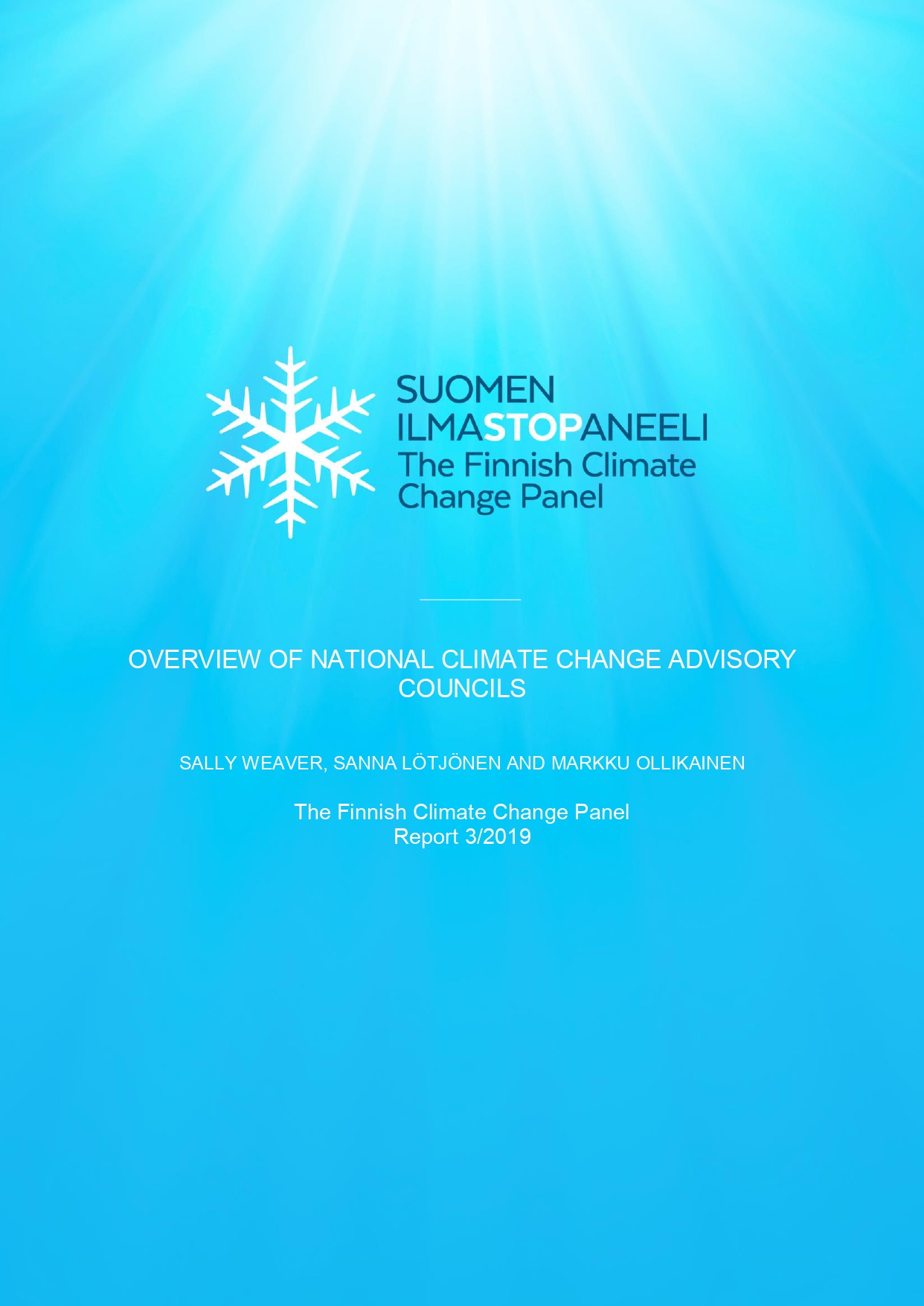Most countries adhere to a principle of evidence-based policy making drawing on the best available knowledge of the scientific community. The more complex the issue in policy focus is, the more important is its deep understanding. Climate change belongs to what are often called wicked problems, indicating that climate change mitigation is multidimensional and difficult to solve because of multiple obstacles and societywide implications. Many countries promote their climate policy by having a climate act as the backbone of policy and this is quite often accompanied by an independent special body, national climate change advisory council, committee or panel. The task of this type of body is to provide science-based policy advice within the mandates the climate acts define.
There are currently roughly a dozen expert advisory councils across all continents and their number is increasing. While in most countries these advisory councils consist of scientists, in other countries also stakeholders or officials hold council positions. In some countries sustainable development or environmental councils have been required to provide climate policy advice as part of their other duties. However, the core elements of independence, expertise and often science-based recommendation are similar in most cases. Advisory councils are established to provide policy makers and authorities with the most relevant independent expert advice when planning policies, or to bring together relevant actors to discuss policy direction and its social acceptability.
National climate change advisory councils are formed and operate in different ways around the world. They are sharing their experiences, for instance by having joined international workshops as councils face similar challenges in their work. Topics all councils encounter and have shared information on cover among others what are the best and cost-efficient measures for mitigation, how to solve the challenges in agriculture and transport, pricing carbon for instance in emissions trading markets, the role of sinks (forestry and others) and adaption plans. Another set of issues relevant for all councils is related to their adapted working practices: producing reports, having consultations with policy makers and the general public as well as media. Each council can learn from the best practices of other councils and the ways they work within the boundaries of national legislation and institutions.
There is much interest in the work of climate change advisory councils not only among various stakeholders in countries where councils work but also by those countries without such an advisory body. The purpose of this overview is to bring together information on climate change councils. Given that some sustainable development and environmental councils do similar work, they are also included in the account to provide a broader view. The aim is to provide information on the way in which national climate councils operate, their backgrounds and mandates. Also, this report serves as a reference for climate change advisory councils, including their composition, mandate and working practices, for anyone looking to learn more.
The key aspects we want to highlight in this overview are the following. What kind of similarities and differences do councils exhibit in terms of their composition, legislative mandate and closeness to national policy making? What are the interesting practices discovered in different chosen councils, which may be useful for other councils to adapt? What sort of role and organization is given to adaption? This account demonstrates the variety of mandates and tasks that climate councils can have. At the end of this overview, we provide a list of climate councils with some additional information, alongside mentions of councils focused on sustainable development or the environment to round up the overview with information on different organisational structures and backgrounds.
The information for this report has been compiled by interviewing council members and staff, examining relevant national climate or environmental legislation and using available information on council websites and publications. The first findings have been reported in the climate councils’ international workshop in London in February 2018 organised by the United Kingdom Committee on Climate Change and the Finnish Climate Change Panel. Several councils have been established in the past few years, so some may have inadvertently been overlooked when compiling this report. Also, the nature of national councils is that their work is communicated in the local language, so some descriptions of councils may be incomplete due to the lack of information available in English or outdated contact details. We apologise if there is a council we have by mistake omitted or if we have misunderstood information provided, and we are grateful to all those who were helpful in providing information and were able to spare their time for interviews.




